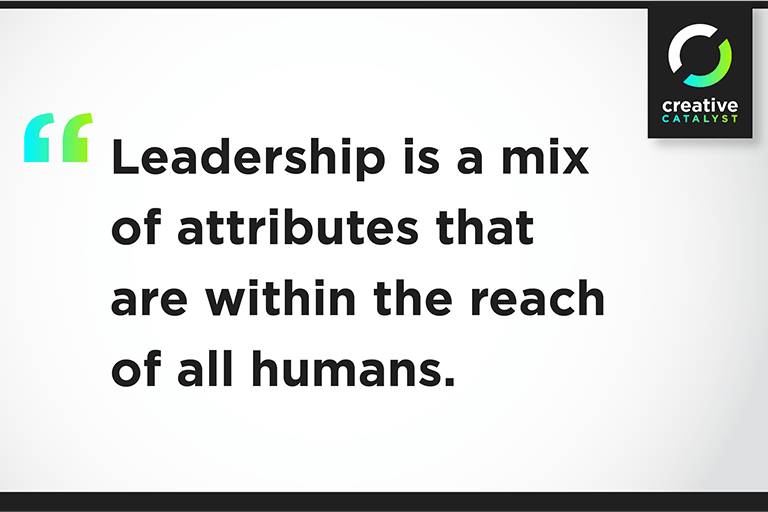Trait theories, also known as “great man” theories, are based on the study of the qualities of great leaders. Although some of these theories hearken back to a time when the accomplishments of women and their leadership were not given due credit, and leadership greatness overly mythologized, they offer insights that can benefit both men and women who lead in all walks of life.
Traits are individual differences or personality variables that make each of us unique. Unlike state, which is highly situational and variable, traits are more stable, even immutable, according to some researchers.
If indeed leadership traits are immutable and cannot be acquired or changed, there is no incentive to study or develop our leadership aspirations.
Instead of looking at leadership traits as rare inborn characteristics bestowed only upon some who are destined to become leaders, we are better off focusing on leadership qualities as a combination of character and characteristics that can be nurtured and learned.
In my previous post, I presented leadership characteristics identified by New York Times columnist Adam Bryant from his interviews with CEOs. Bryant emphasized curiosity, willingness to take on a challenge, commitment to a career, trustworthiness and respect for team members as some of the common attributes among the CEOs he interviewed.
Leadership traits from the literature ...
Let's also look at some findings from the leadership literature. In his book titled, Leadership, Peter Northouse offers five key leadership traits that should come as no surprise: intelligence, self-confidence, determination, integrity and sociability.
Leadership and the Big-Five ...
Then there is research on the Big-Five personality factors and their links to leadership. Among the five, extroversion is the strongest predictor of leadership, followed by openness and conscientiousness. Agreeableness was not correlated with leadership and neuroticism was negatively correlated.
Grouping various attributes from the three clusters presented above, we see that leadership is a mix of attributes that are within the reach of all humans. It does not require rare genius. Leadership requires self-confidence, character, determination, conscientiousness and social skills, which are fundamental human qualities that are not above anyone's reach.
Leadership should be emphasized with a lowercase "l" because it is not the exclusive privilege of those in the c-suite. Leaders are women and men of integrity, who portray a positive attitude, have strong social skills and demonstrate excellence in what they do. Perhaps you are one yourself. Or, you may know of someone at work who fits this description.
By Prabu David
Prabu David is Dean of the College of Communication Arts and Sciences at Michigan State University. His class on leadership is part of an online master's program in Strategic Communication.
